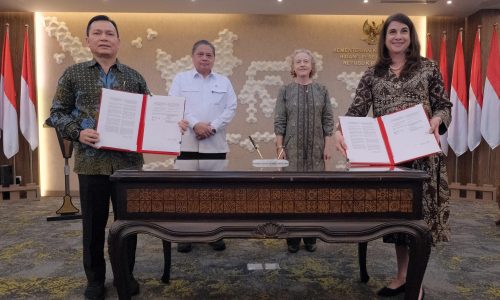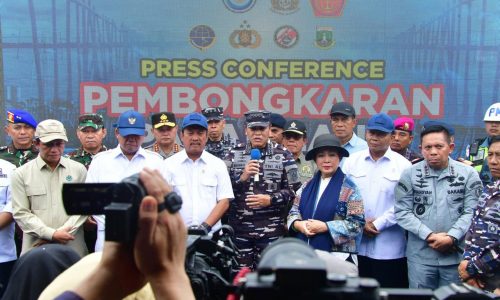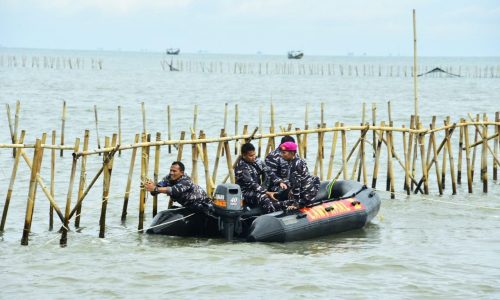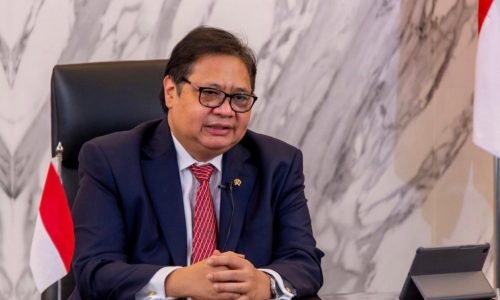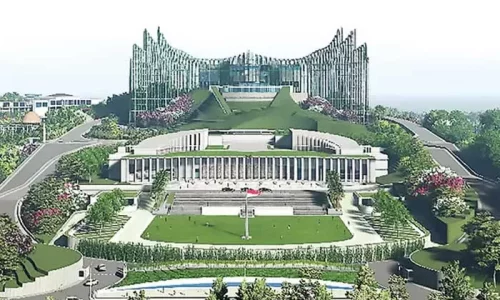The Center for Indonesia’s Strategic Development Initiatives (CISDI) says that the simultaneous Regional Head Elections (Pilkada) on Wednesday, November 27, 2024 can be a momentum to determine leaders who care about the impact of the climate crisis.
The center, wowever, asseses that the commitment of regional head candidates in dealing with the climate crisis is still focused on economic development that is oriented towards growth.
“In fact, economic development must pay attention to the environmental impact and social justice for the community,” Raisa Andriani, Project Lead for Food Policy at CISDI, said on Thursday, November 21, 2024.
The General Elections Commission (KPU) has mainstreamed the issues of the climate crisis, the environment, and food security as themes for the regional head candidate debates.
Raisa said that regional heads who are committed to overcoming the climate crisis are very crucial because of its impact on the quality of the environment, social life, economy, and health.
According to her, the climate crisis has had an impact on public health, as well as decreasing access to healthy and quality food.
“From the supply side, the climate crisis affects the farming and harvesting cycles of farmers which directly impacts the quality and quantity of healthy local food production,” she said.
Currently, the climate crisis has become a critical issue for all countries, including Indonesia which has ratified the Paris Agreement in 2016. Many regions are affected by the climate crisis, reducing agricultural production, thus threatening food security.
Based on research data from the World Food Agency (FAO), agricultural production in Java is predicted to decrease by 5 percent in 2025 and decrease by 10 percent in 2050 due to the climate crisis.
Meanwhile, the Indonesian government’s commitment to handling the climate crisis as well as providing quality food has actually been stated in the National Medium-Term Development Plan (RPJMN) 2020-2024 and the National Long-Term Development Plan (RPJPN) 2024-2045.
“However, we consider that the implementation of the RPJPN should be monitored and integrated to the regional level through the Regional Medium-Term Development Plan (RPJMD),” she said.
Raisa said that the current climate crisis also has the potential to encourage people to access unhealthy food.
Based on the 2023 Indonesian Health Survey, people access unhealthy food because it is easy to get and affordable.
For example, ultra-processed food and packaged sweetened drinks are easier for people to access and find. The high consumption of these foods can contribute to increased obesity and the risk of other diseases.
Healthy food
In response to the Prabowo government’s plans to implement a free nutritious meal program, CISDI encourages local governments to ensure that local food remains a priority in planning the free nutritious meal program menu.
On the other hand, the government must dare to reject the potential entry of unhealthy food in the implementation of the program, which tends to be high in sugar, salt, and fat.
Collaboration between the central and regional governments is needed to f the challenges of food security, including the fulfillment of healthy food.
“Locality is a key aspect in realizing a sustainable healthy food supply chain. This is where regional heads play a key role in solving climate issues as well as food security challenges,” Raisa said.



